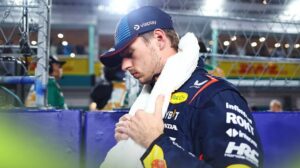LATEST: Maple Leafs’… Roster Strategy: …., Worry Later

Maple Leafs’… Roster Strategy: …., Worry Later
My perspective on managing hockey teams has significantly evolved over the past few years. Coming from an academic background, where I led a small unit within a university, I was accustomed to managing budgets and personnel without making financially detrimental decisions.
This business-oriented mindset initially influenced my approach to hockey management, where I believed in prudent, long-term decisions and avoiding overspending.
However, the NHL’s emphasis on immediate success fundamentally differs from traditional business practices.
While financial prudence and future planning are important, the primary goal is to win the Stanley Cup now. This requires aggressive moves and capitalizing on current opportunities rather than focusing solely on long-term strategies.
The Maple Leafs must focus on acquiring the best players within the current salary cap and prioritize immediate success, addressing future issues as they arise.
Hyman’s Contract Shifted My Perspective on NHL Management
Zach Hyman’s impact on the Edmonton Oilers made me rethink traditional business principles in hockey. The Maple Leafs did not meet Hyman’s contract demands, leading him to sign a seven-year, $38.5 million deal with the Oilers.
Initially, I feared this contract would become burdensome in its later years due to the NHL’s salary cap constraints. However, Hyman’s performance and the Oilers’ near Stanley Cup victory demonstrated the value of investing in impactful players, even with lengthy contracts.
The Maple Leafs’ Tanev Contract Is a Case in Point
Signing players like Chris Tanev to long-term contracts, even if they extend into the player’s later years, may not be as risky as I once thought. Despite concerns about Tanev’s age and style of play, the Maple Leafs need strong defensemen now.
Tanev’s six-year, $4.5 million annually contract and Oliver Ekman-Larsson’s four-year, $3.5 million annually deal fill critical needs. Tanev’s defensive abilities will allow Morgan Rielly to focus more on offense. Even if Tanev’s performance declines, the immediate benefits justify the long-term commitment.
Similarly, Ekman-Larsson’s experience will add depth to a team struggling in the playoffs despite its talent.
Need to Win in the NHL Now Trumps Future Concerns
For a win-now team like the Maple Leafs, acquiring good-to-elite players should be prioritized, even if their contracts pose future challenges. If a move like signing Tanev doesn’t work out, the team can address it later.
The NHL’s complexity can sometimes lead to overthinking. The Maple Leafs need to focus on acquiring high-performing players to seize their current window of opportunity and overcome their playoff frustrations.
NHL Teams Cannot Be Run Like Typical Businesses
Ultimately, the NHL operates with a focus on immediate results, unlike typical businesses that emphasize sustainable growth. The pursuit of the Stanley Cup demands an aggressive, short-term approach.
Hyman’s success with the Oilers challenges the notion of avoiding large contracts to maintain future flexibility. NHL teams like the Maple Leafs must capitalize on their current roster’s potential, even if it involves financial risks. Acquiring players like Tanev and Ekman-Larsson addresses immediate needs and enhances the team’s chances of success now, with long-term implications being secondary to the urgent goal of playoff success.








